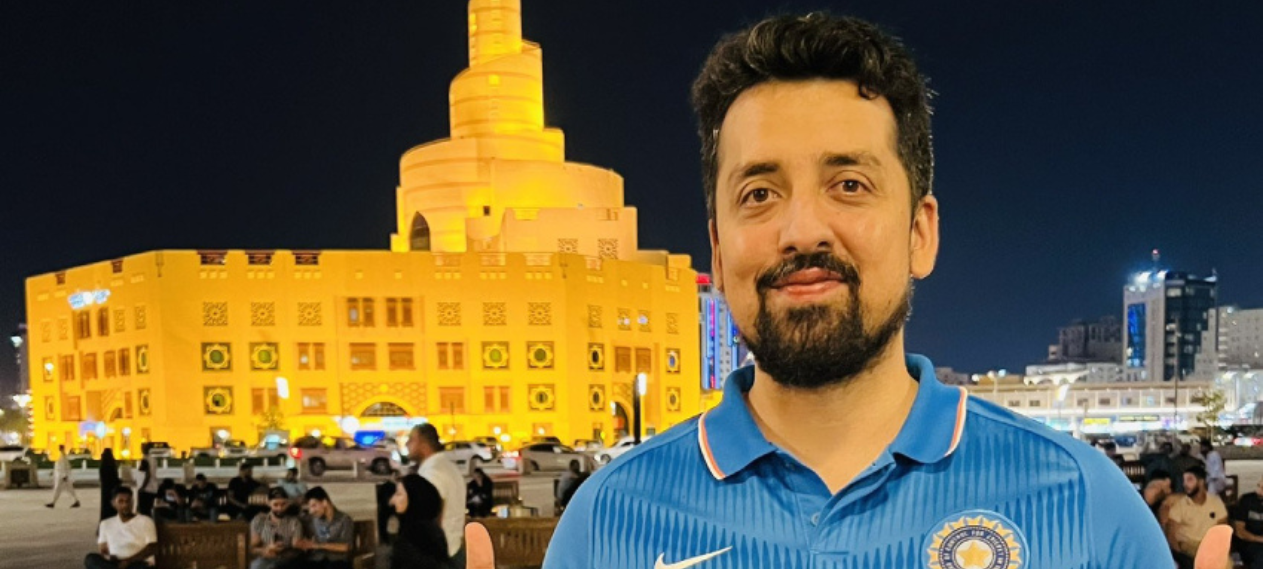Indian sports journalist Sushant Mehta is facing significant online criticism after a video clip containing Islamophobic remarks went viral on various social media platforms.
In the widely circulated video, Mehta can be heard making contentious comments while responding to an old video featuring Indian stand-up comedian Munawar Faruqui.
Shame on you, @SushantNMehta 👎🏼👎🏼👎🏼
Islam doesn't teach us to disrespect other religions and I'll never do that. Just for sake of views, you decided to stoop so low. Everyone in Pakistan should boycott this moron and report him ❌ #BoycottSushantMehta pic.twitter.com/AysBFWZvnd
— Farid Khan (@_FaridKhan) January 15, 2024
Who is Sushant Mehta?
Sushant Mehta manages a YouTube channel named “Sports Yaari,” focusing on cricket player interviews, game analysis, and the latest updates about the Indian cricket team.
The YouTube channel boasts 800k subscribers, and his followers on various platforms exceed 19k. The show typically features Mehta and a group of individuals providing passionate match reviews.
He also operates a sports website under the same name.
Why is Sushant Mehta gaining attention on social media?
Mehta triggered a backlash after making controversial remarks about Prophet Muhammad (PBUH) while reacting to Faruqui’s old video, where he discussed Hindu deities.
Criticism towards Mehta has come from various quarters, with calls for a boycott of his show and demands for an apology regarding his Islamophobic comments. The public response to his comments has been swift and strong.
Making fun of religious beliefs and Holy Prophet PBUH is highly condemnable. Indian Muslims should boycott the clown named Sushant Mehta. #BoycottSushantMehta pic.twitter.com/le81mAB5ca
— Abubakar Bin Tallat (@AbubakarAbbasii) January 15, 2024
Islamophobia in India
Islamophobia, characterized by an irrational fear or hatred of Islam and Muslims, has unfortunately found a foothold in various parts of the world, India included. Despite the nation’s diverse and pluralistic fabric, several incidents have raised concerns about the prevalence of Islamophobia, necessitating increased awareness and efforts towards understanding and tolerance.
Here are some famous incidents of Islamophobia in India:
Babri Masjid Demolition 1992
The demolition of the Babri Masjid in Ayodhya stands out as one of the most notorious incidents in India’s history, resulting in heightened communal tensions. The mosque’s destruction and the ensuing riots contributed to widespread mistrust and fear within the Muslim community.
Gujarat Riots 2002
Triggered by the Godhra train burning incident, the Gujarat riots witnessed widespread violence against Muslims. Targeted attacks during the riots led to loss of lives and displacement, leaving an enduring impact on the affected communities.
Muzaffarnagar Riots 2013
Communal clashes in Uttar Pradesh during the Muzaffarnagar riots were fueled by disinformation campaigns and hate speeches. The violence displaced numerous families, leaving a lasting impact on inter-community relationships.
Triple Talaq Bill Controversy 2019
The introduction and passage of the Triple Talaq Bill stirred debates and concerns within the Muslim community. While aimed at addressing gender justice, apprehensions arose over its framing and implementation, with some viewing it as disproportionately affecting Muslims.
Tablighi Jamaat Controversy 2020
Amid the COVID-19 pandemic, the Tablighi Jamaat gathering in Delhi became a focal point for Islamophobic sentiments. Media coverage and political discourse associating the event with virus spread contributed to stigmatization and discrimination against Muslims.
Love Jihad Allegations
Allegations surrounding “Love Jihad,” describing supposed efforts to convert non-Muslim women to Islam through marriage, perpetuate stereotypes and suspicions about the Muslim community. These claims often emerge from misinformation and have led to unwarranted scrutiny.
Clashes in New Delhi 2020
Violence erupted during protests against the Citizenship Amendment Act. This marked a tragic incident resulting in approximately fifty casualties, predominantly from the Muslim community, representing the capital city’s most severe communal violence in decades.
Allegations surfaced that certain BJP politicians played a role in instigating the violence, and reports suggested that the police did not intervene to prevent Hindu mobs from assaulting Muslims. A 2021 Human Rights Watch report highlighted a lack of investigations into police complicity, contrasting with charges filed against over a dozen protesters.
Protest on Islamophobic Remarks 2022
In May, two BJP officials uttered offensive comments about Prophet Mohammed, sparking deadly protests across India and drawing condemnation from Muslim-majority nations.
The BJP took action by suspending the implicated officials. The subsequent month saw a distressing incident where two Muslim men killed a Hindu supporter of one of the BJP officials, capturing the attack on film and sharing it online.
Critics argue that BJP officials have downplayed recent violence against Muslims. Ghazala Jamil, an assistant professor at Jawaharlal Nehru University in New Delhi, notes, “During Modi’s first five-year term, there were continuous attacks on Muslim individuals, creating a sense of siege within the community.
The perception was that being a Muslim made you vulnerable to attacks anytime, anywhere.” The proliferation of hate speech and misinformation online has further fueled violence against Muslims.
An Assistant Professor of Jawaharlal Nehru University Ghazala Jamil said,
“The idea was that if you were a Muslim, you were liable to be attacked anywhere, anytime.”
Islamophobia in India remains a complex issue that necessitates careful examination and concerted efforts to address. While these incidents have cast a shadow on the nation’s secular ethos, it’s crucial to recognize that they don’t represent the views of the entire population.
Building understanding, fostering dialogue, and promoting tolerance are essential steps towards combating Islamophobia and nurturing a more inclusive and harmonious society. India, through awareness, education, and empathy, can strive to overcome the challenges posed by Islamophobia and embrace the principles of diversity and unity.

